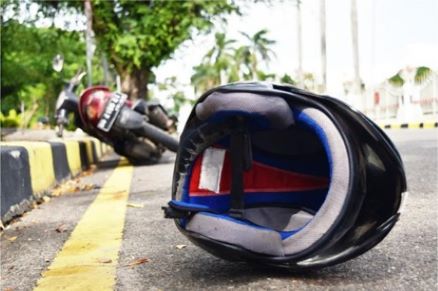General Insurance Blogs, Articles & Updates by - Magma Insurance
Have us call you
- RENEW YOUR POLICY
- BUY NEW POLICY

How to find bike insurance details with the help of the registration number
Did you know that you only need the unique registration number of your vehicle to get the details of your bike insurance online? In this article, we'll provide you with all the information on the registration number.
When you buy a bike insurance policy, details of it get linked with your bike's registration number. Therefore, you can quickly check the information of your bike insurance through your bike's registration number.
As per the Insurance Regulatory and Development Authority of India (IRDAI), it is mandatory to carry insurance documents of the bike whenever you are on the road. If one fails to do so, there is a possibility that the claim settlement may be invalid in case of any mishap. Even though policy documents are essential papers, misplacing them is a pretty common occurrence among policyholders.
However, fret not! It is pretty simple to find the details of your insurance with the help of the registration number. Let's understand this here:
What is a Registration Number?
A bike registration number is a unique number issued by the Regional Transport Office (RTO) of your district. Every vehicle owner must obtain a registration number within 30 days of purchase of the vehicle.
The registration number is helpful to identify the owner of the vehicle in multiple scenarios. Apart from identification, the registration number is a must for a bike insurance policy, renewal of it, or insurance claim.
Your vehicle's registration number is displayed on a metal number plate and affixed at the front and back of the two-wheeler. The registration number has an accredited structure for different types of vehicles. Let's understand this further here.
Consider this, your vehicle is registered in Delhi and is granted the number DL 0X BX XXXX. The first two alphabets indicate the state code, and the next two digits are the unique district code. The following two alphabets are the current series of the RTO and the classification of vehicles. And, the last four digits are your vehicle's unique number.
How to derive two-wheeler insurance details by your vehicle's registration number?
When buying bike insurance online, the details of your policy are automatically synced with the registration number. RTO, Central, or State Government can use details for official purposes. You can enter your registration number on any of the following websites to get details on your bike insurance online:
● Official website of the Regional Transport Office RTO where the bike is registered
● Website of the state transport department
● Website of the Ministry of Road Transport and Highways (parivahan.gov.in)
● Website of the Insurance Information Bureau (ibb.gov.in) of the Insurance Regulatory and Development Authority of India (IRDAI)
Further, you can even renew your existing insurance policy using your two-wheeler's registration number. There is a facility for tracking the details of your policy online and renewing it before it expires.
The registration number links your vehicle directly to RTO's and Government's databases, so this stands out to be an advantage to maintain a record of your two-wheeler's insurance.
WANT TO KNOW ABOUT THE BEST BIKE INSURANCE ONLINE POLICY FOR YOUR VEHICLE? CLICK HERE…

Let's understand the difference between regular and synthetic motor oil
Routine oil change ensures that your vehicle’s engine is in good shape. Moreover, it guarantees that the machine operates on high-quality motor oil thus improving its performance and the engine’s life. But which oil is suitable for vehicles - regular or synthetic?
Most people believe that oil does not make a significant difference in the performance of your car, but that isn’t the case. The type of oil used for your motor impacts its well-being and durability. So, to secure your car’s engine, be attentive to the requirements regarding its oil.
Let's quickly look at the aspects that differentiate these two types of oils before you pick a side.
What exactly is Regular oil?
Regular oil or conventional oil is a blend of crude oils and additives that meets the minimum requirements for engines and is commonly used in older or low-mileage vehicles. Depending on the manufacturer and pricing, these oils can range from mediocre to excellent grade.
What is Synthetic oil?
Synthetic motor oil combines high-quality additives that provide the finest engine protection. It can help with engine cleanliness, heat prevention, and engine endurance. It is usually suggested for all current and new-age automobiles due to its benefits of providing the highest engine protection.
How to determine which oil is better for your vehicle?
The ultimate way to choose which oil to go for is by reading your vehicle’s user manual, which states the correct oil for your motor. However, other minor factors contribute to decision-making, such as the age of the vehicle, usage, way of driving, and so on.
Advantages of Regular vs. Synthetic oil
1. Regular (Conventional) oil:
• The most obvious advantage of choosing conventional oil is that it won’t burn a hole in your pocket.
• It is readily available and a good choice for drivers and mechanics to get their hands on.
• Well suited for older motors.
• Many motor companies and mechanics advise using traditional oil for older vehicles and low-mileage vehicles.
2. Synthetic oil:
• Synthetic oil is composed of homogeneous molecules that reduce friction in the engine.
• Synthetic oil is also more refined, resulting in fewer deposits in the engine. It is purer and has fewer contaminants.
• It is improbable to break down and hence has higher durability.
• It lasts longer; thus, your motor won’t need frequent trips to the mechanic for an oil change.
The decision between conventional and synthetic motor oil depends on where and how your vehicle is used. Consult the owner’s handbook to ensure you’re using the recommended oil for your car. It will also inform you of the proper distance periods between oil changes.
You should timely replace your motor oil, whether you use regular or synthetic motor oil. Like the oil for your engine, investing in good motor insurance is always the right thing for your vehicle. Using motor insurance with limited features will not provide you complete protection to your car against financial emergencies during any breakdown. Therefore, make sure to browse through the options before purchasing the best one for your vehicle.
Are you looking for a suitable motor insurance? Click HERE .
Disclaimer: The information provided above is for illustrative purposes only. To get more details, please refer to policy wordings and prospectus before purchasing a policy.

Five reasons why parents should not give in children's demands for bikes
Bike riding by teens is becoming one of the most common sights nowadays. Many teenagers feel independence and pride as they no longer depend on their guardians to drive them to places. As a result, adolescents have the irresistible urge to flaunt their expensive bikes and lethal driving skills in front of their peers.
You will come across many road accidents reported on the news channels every day. According to research, a person travelling in a commercial plane is less likely to die than riding a motorcycle on Indian roads.
Unfortunately, minors don't take into consideration the consequences of mindless driving. Even some parents allow their kids to drive because they think the worst that could happen is receiving fines from traffic police. However, outcomes can be much severe. Also, your bike insurance won't help you in case of death due to underage driving.
In this article, we share five reasons why parents should not give in to children's demand for bikes.
1. Legal consequences:
The Motor Vehicles (Amendment) Act of 2019 states that the guardian or the vehicle owner shall be held liable for the infringement and shall be punished accordingly. Imposition of a fine of Rs. 25000 with three years of imprisonment will be made if your ward drives in an illegal driving age. The minor may have to go to court as well and face trials under the Juvenile Justice (Care and Protection of Children) Act resulting in the cancellation of the vehicle's registration.
2. They are not yet matured:
An individual needs to be cognitively mature to drive fast cars and bikes. For example, adolescents may feel the thrill of getting an adrenaline rush when riding a motorcycle at high speed. But, what they don't understand is that their brains are not yet mature enough to handle it.
3. Road accidents:
According to International research, the possibility of underage drivers being involved in a road accident is four times more than adult drivers. Road accidents are among the top causes of death and injury for people between the age of 16 to 20. Reasons are inexperience, distraction, poor driving judgment and decision making, alcohol consumption, and lack of adequate driving skills.
4. Financial drain:
Financial drain is not seen as a problem by many. But believe it, accidents can take a toll on your life savings. In some cases, insurance does not cover the cost of the damage or third party insurance. Plus, if the crash leads to any chronic health problems, then you will keep drowning in the hospitalization bills for the rest of your life.
5. Physiological trauma:
We often overlook the matters of mental health. But unfortunate events like this can be very traumatic. If you or your dear ones have been in an accident, you will likely have anxiety and panic attacks in the future. The memories of tragic accidents can cause mental health problems to the young, and the memories are enough to last you a lifetime.
Prepare yourself for your teen to take the wheel:
If you have a teenager in your family who will be of legal age to drive soon, distance your kids from any such bad experience. Being a good driver and role model, you can instil safe driving habits in your teen. For example, you can re-familiarize yourself with your vehicle's safety features and discourage phone use while driving.
Safe driving has an immediate payoff to you and your teenager by keeping accidents and violations off a teen's driving record.
TO KNOW MORE ABOUT THE DIFFERENT BIKE INSURANCE, CLICK HERE…

Five misconceptions about Two Wheeler Insurance
Whether you decide to buy 2 wheeler insurance online or otherwise, many myths and misconceptions are associated with it. It is important to have all the information about the insurance policy that addresses your requirements before buying two-wheeler insurance.
Having a two-wheeler insurance assures you to handle whatever the road throws at you, giving you peace of mind and letting you enjoy riding without a worry.
Please also remember that as per the Insurance Regulatory and Development Authority of India (IRDAI), every two-wheeler owner must buy a third-party liability insurance for the vehicle.
Here we bring five common misconceptions that often lead you to settle for something less worthy.
1. It is risky and complicated to buy 2 wheeler insurance online:
We agree that buying insurance online can be tricky sometimes. But, not if you purchase insurance from a recognized company that has a good market reputation. It is advisable to do some research on the company, check the credibility and Claim Settlement Ratio (CSR) before purchasing. It is easier to buy two-wheeler insurance online; all you need to do is log on to the insurance provider's website, fill in your and your vehicle's details, select your plan, and you will get a quote for the premium amount. Make the payment through the secure payment gateway provided by the company and receive your policy document online.
2. Third-Party liability cover is enough for insurance:
As mentioned earlier, third-party liability insurance is mandatory in India. However, it does not mean that having only third-party liability insurance is sufficient. It only covers the losses of the third party. Accidents can cost you much more than you can think. Therefore, it is advisable to go for a comprehensive plan. A comprehensive plan not only covers the third party but also the damages to your two-wheeler and your hospitalization costs in case of an accident.
3. The pillion rider is covered under insurance:
People often assume that the co-passengers get protection by the policy too. And it's one of the biggest misconceptions. In case of an accident where the pillion rider faces injuries, their hospitalization charges are rarely covered under insurance. However, there are many add-ons available for personal accident covers to resolve the issue of pillion riders.
4. You can cancel your insurance policy without any consequences:
To some extent, it is true. You can certainly cancel your policy, but some additional cancellation charges/fees apply to it. Also, note that it is illegal to ride a two-wheeler on Indian roads without an active and valid insurance policy.
5. Premium depends upon your credit score:
Many owners feel the need to maintain a good credit score to bring down the premium, which is not true. The credit score is not a criterion as there are many other factors like age, make and model, IDV, previous insurance records to determine the premium rate. So, even if you have a low credit score, you can still get a reasonable low premium.
It is advisable to research on your own before buying any policy. Steer clear of such misconceptions that lead you to make bad decisions.
WANT TO KNOW MORE ABOUT THE FEATURES OF 2 WHEELER INSURANCE ONLINE. CLICK HERE…

